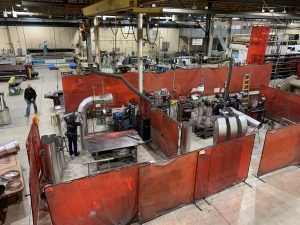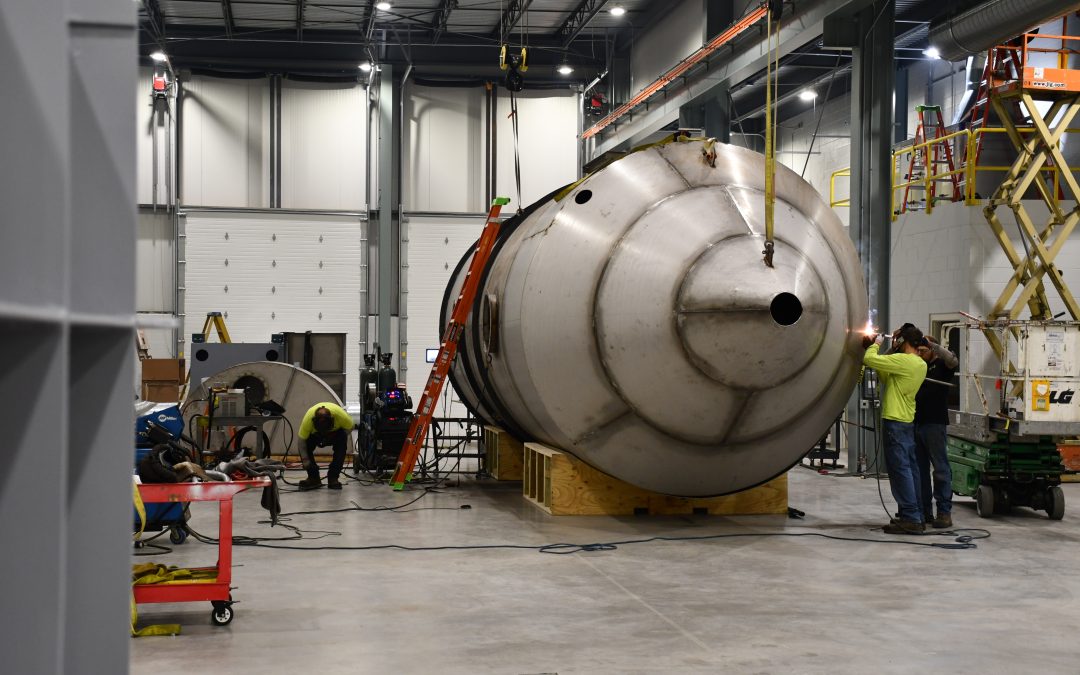Industrial Sheet Metal Fabrication
Sheet metal fabrication is an essential industrial process, pivotal in crafting durable and functional products. This process entails converting various metal sheets into specific shapes and sizes, essential for whatever your industrial use. A fundamental understanding of sheet metal fabrication is critical in choosing the appropriate materials for any project, which guarantees longevity and optimal performance.
Examining Various Metals, the type of metal chosen for sheet metal fabrication significantly impacts the durability and functionality of the final product. Prominent metals include:
- Steel: Distinguished for its strength and adaptability, steel is extensively utilized in industrial applications. Treatments like galvanization can enhance its resistance to corrosion.
- Stainless Steel: Stainless steel is one of the more versatile metals because it resists corrosion and can also be used in marine environments. 304 and 316 are two of the more common types of stainless steel that we use regularly.
- Aluminum: Notable for its strength despite being lightweight, aluminum is ideal for applications where weight is a critical factor. It also boasts corrosion resistance, suitable for outdoor installations.
- Copper: Valued for its excellent electrical conductivity, copper is commonly used in electrical components. Its malleability facilitates shaping into intricate designs.
- Brass: A blend of copper and zinc, brass is selected for its aesthetic value and resistance to corrosion, commonly seen in decorative uses.
- Titanium: An extremely stiff and lightweight metal used in high strength applications. Due to its cost, titanium is sometimes prohibitive.
Each metal type possesses unique properties, and understanding these is fundamental in making an informed selection.
Optimal Selection of Sheet Metal for Mechanical Contractors Mechanical contractors must judiciously select the most appropriate sheet metal for their projects, considering factors like cost, durability, and specific requirements. Key considerations include:
- Environmental Assessment: Factor in the environmental conditions to which the metal will be exposed, such as moisture, temperature extremes, and potential chemical interactions.
- Application Requirements: Different applications necessitate varying metal properties. For example, ductwork requires metals like aluminum that are lightweight and malleable, whereas structural components may need the robustness of steel.
- Longevity Evaluation: Determine the expected lifespan of different metals in specific applications. Galvanized steel, for example, may offer enhanced durability in outdoor settings compared to untreated alternatives.
- Budget Considerations: Striking a balance between quality and cost is essential. While higher-grade metals may deliver superior performance, they also come at a higher cost.
Conclusion Selecting the appropriate sheet metal for industrial applications is a critical decision for mechanical contractors. By thoroughly understanding the properties of various metals and evaluating the specific requirements of a project, one can ensure a durable and effective solution. Remember, the success and longevity of any industrial application are largely dependent on this crucial decision.

